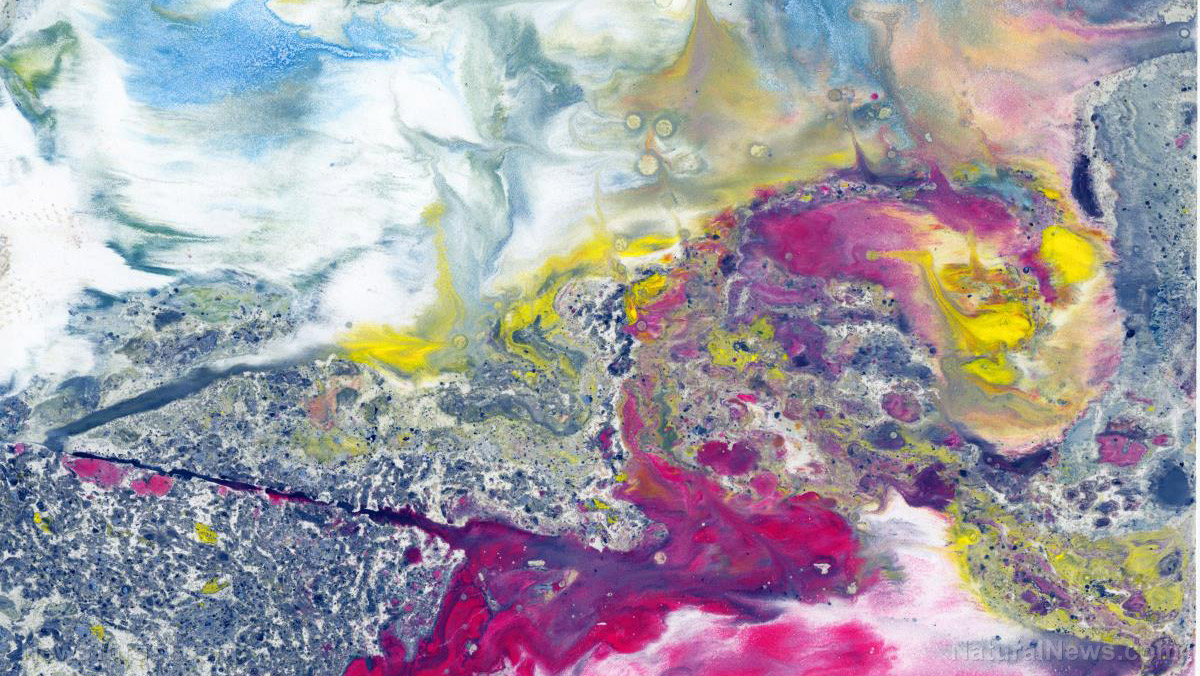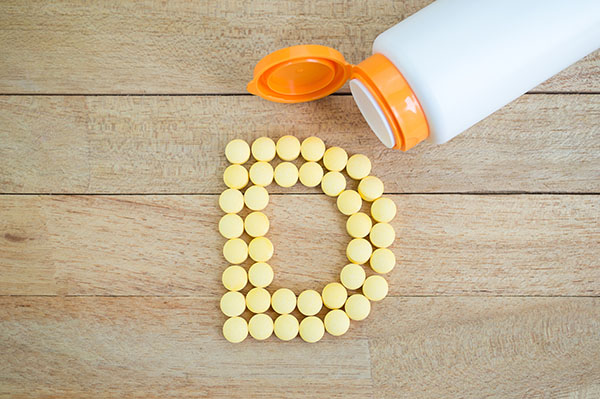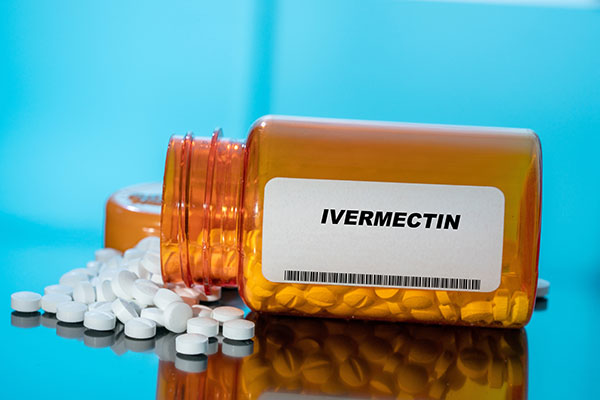
When SHTF, you need to be creative and think up at least two to three additional ways to use your supplies. To make the most of your survival supply, you should stock up on potassium permanganate, a useful item with seven incredible survival uses. (h/t to SurvivalSullivan.com)
What is potassium permanganate?
Potassium permanganate is a commonly used chemical compound with useful antiseptic qualities. It's a strong, inorganic oxidizer that often appears as tiny crystals, much like coarse sand or salt.
The compound ranges in color from a unique royal purple color to nearly black. When dissolved in water, potassium permanganate will produce a solution that ranges from light pink to midnight purple in color, depending on the concentration.
Safety precautions when using potassium permanganate
Potassium permanganate is a potent oxidizer. Direct physical contact with the compound will turn your skin and nails a dark brown. Prolonged contact will cause significant burns or even corrode your flesh.
While not often used in a form fine enough to be airborne, inhaling dust or combustion byproducts of potassium permanganate may cause severe lung damage.
Use personal protective equipment
Use chemically resistant gloves and a face shield when handling potassium permanganate. Alternatively, you can use chemical-resistant safety goggles. If potassium permanganate presents an atmospheric hazard, use breathing protection like a gas-tight suit and a breathing apparatus.
Symptoms and side effects of exposure to potassium permanganate
Use potassium permanganate cautiously since it can hurt you through contact with your skin or eyes, inhalation or ingestion.
- Skin contact with potassium permanganate may cause redness, an irritating or tingling sensation and brown staining. Prolonged contact will cause burns or total corrosion of tissue in the affected area.
- Getting potassium permanganate in your eyes will cause severe inflammation and corrosion of eye tissues. Prolonged contact may also cause permanent eye damage.
- Inhaling potassium permanganate particles can cause respiratory tract issues. Weak concentrations may cause a sore throat or irritation of the respiratory tract. Inhaling high concentrations can significantly irritate mucous membranes and cause breathing difficulties and long-term, lung-related problems like pulmonary edema.
- Ingestion may cause diarrhea, nausea and significant irritation of the intestines. Ingesting large quantities may cause difficulty breathing, spasming of the larynx, perforation of the esophagus, erratic heartbeat, shock and low blood pressure.
First-aid for potassium permanganate exposure
If significant exposure has occurred or if you experience major symptoms, seek emergency medical care immediately.
- If someone inhales potassium permanganate, move him somewhere with fresh air and keep him there.
- If a person gets potassium permanganate in his eyes or skin, remove all contaminated clothing quickly. If the clothing can't be removed, don't force removal as it might be melded to the skin. Flush the affected area with cool water continuously for about 15 minutes.
- In case of ingestion, give the person fresh, cool water to drink.
Do not induce vomiting or use any neutralizing agents externally or internally. Only use water to neutralize and treat exposure to potassium permanganate because any other substance may cause a dangerous reaction.
Potassium permanganate storage tips
Since potassium permanganate is an oxidizer, it should be stored in a container made of aluminum, glass, porcelain or steel. The container must have a tightly sealing lid fitted to it.
Keep the container away from direct sunlight, moisture and heat sources. Don't store potassium permanganate near alcohol, peroxides, cellulose or materials high in cellulose, metallic powders or organic materials.
7 Survival uses of potassium permanganate
When SHTF, here are 7 ways to use potassium permanganate:
Firestarting
Prepare the site of your fire, tinder and kindling. Carefully place a small amount of potassium permanganate on the kindling, then use a different tool to measure out the same portion of glycerin and combine the two.
Move back quickly and be ready for flames. Don't use a tool that was used to scoop out the first chemical because this will create a powerful and uncontrollable chain reaction that may result in a fire. (Related: 25 Survival supplies you’ll need to stock up on before SHTF.)
Water purification
Use potassium permanganate carefully for water purification. Too high a concentration in your drinking water may cause negative side effects. Add potassium permanganate crystals one at a time to the water source to be treated. Stir to dissolve the crystal completely before adding another.
Once the water barely turns pink, it can be used to kill most kinds of bacteria. Wait for 30 minutes and stir the mixture periodically. The water will then be safe to drink. When treating water with potential viral contaminants, use about two crystals of potassium permanganate.
Fruit and vegetable wash
Potassium permanganate can help protect you from cholera and common germs that cause food-borne illnesses. To use potassium permanganate as a fruit and vegetable wash, dissolve one crystal in water. Add one tiny crystal at a time before stirring until the water changes from clear to a medium purple tone. Dip a cloth in the solution and wash fresh fruits or vegetables with it. You can also dip the produce in the solution before rinsing them with fresh water and drying them.
Marking dye
Potassium permanganate dissolved in water will stain almost anything it comes in contact with, which may come in handy when SHTF. If you are lost outdoors, you can use potassium permanganate as a light or medium purple marking dye to stain snow and catch the attention of rescuers traveling by aircraft.
Fungicide
When applying potassium permanganate to your skin, dilute it with water. Use a dilution ratio of 1:10 (potassium permanganate to water) when preparing a 0.1 percent potassium permanganate solution.
If you have a fungal infection on your feet or beneath your toenails or fingernails, prepare a potassium permanganate solution like the one recommended for washing fruits and vegetables. Soak the affected area in it for at least 10 minutes. If you experience discomfort or irritation, stop using the solution.
General wound disinfectant
Potassium permanganate can be used as a general disinfectant because it doesn't react to or produce any toxic byproduct with commonly used chemicals or medicines. Add potassium permanganate crystals to water one crystal at a time and stir to dissolve completely until the solution is a medium purple color. Use the mixture to rinse out scrapes, small lacerations and other injuries to prevent infections.
Pour the solution into an irrigator bottle to rinse a wound and the surrounding area. Note that the solution will sting and can stain clothing as well as your skin.
Treatment for certain skin conditions
Use a diluted potassium permanganate mixture to treat skin conditions like impetigo, pemphigus or dermatitis. When preparing the solution, aim for a medium pink color since you don't need something too concentrated. Use the solution to rinse the affected area or apply for 10 to 20 minutes with a compress soaked in it. Stop using the solution if you experience irritation or burning. Rinse with clean, cool water when you're done.
Stock up on potassium permanganate before SHTF so you have access to a compound that can be used as a fruit and vegetable disinfectant, a fungicidal solution or a firestarter.
Sources include:
Please contact us for more information.





















